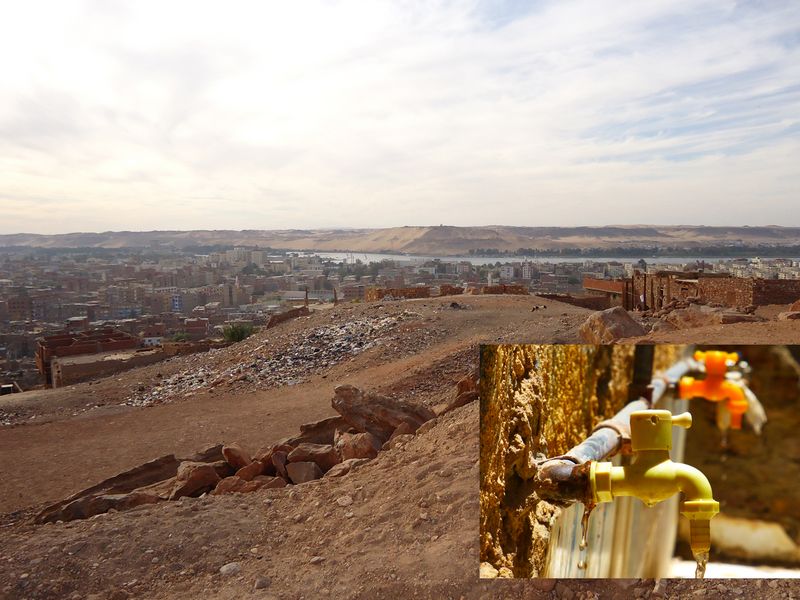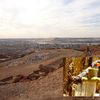Aswan:Water Programme Aswan: Access to Quality Drinking Water and More Efficient Water Usage
Disciplines
-
Water Supply
Companies
Dorsch International Consultants
Client
Aswan Water and Wastewater Company ACWW and; Holding Company of Water and Wastewater HCWW
Duration
From 2012 to 2016Project Activities
The programme included 4 components, 3 of which were implemented as follows:
Component 1: Rehabilitation/extension of drinking water supply for informal quarters of Aswan.
Provision of adequate water supply in Nassereya and another informal communities or selected programs in Aswan.
Stage 1 Emergency Measures Nassereya:
Construction of a water supply pipeline, to duplicate the existing pipeline from the north, to approximately 2km long and connecting with a pipeline main from Gabal Takouk WTP. Extension of the pumping station (and two storage reservoirs (
A focus was placed on empowering women in the dialogue and take a leading role in decision making.
Stage 2 Main Measures Nassereya:
Extension of the existing pump station, reinforcement of the delivery pipeline, construction of additional high level storage capacity and any essential network rehabilitation.
Another gender-sensitive consultation was organised to explain the proposed measures and identify priorities for rehabilitation within the District.
Stage 3 Other Investment Measures:
In parallel with Stage 2, workshops were organised with stakeholders to determine the priorities for the remaining investment budget. These included
- Other interventions in the informal areas adjacent to Nassereya, i.e. in Khour Awada and Khattaria Settlements.
- Interventions in other informal areas.
- Rehabilitation of water treatment plants to improve supply.
Component 2: Technical assistance to Aswan water authorities, with special focus on quality of drinking water, water leakages/losses as well as issues of good governance.
Strengthening of the administrative and technical capacity of the Aswan Water and Wastewater Company to achieve an efficient and sustainable operation of the water and wastewater systems. The component included, among others:
- Improving customer management by conducting a pilot comprehensive subscriber survey (CSS) programme
- Assisting in the implementation of an advanced GIS-based maintenance and repair management tool (DCMMS)
- Supporting management of operations & maintenance schemes and identification of investment needs
- Introducing a web-based analysis and archiving tool for bulk metering along with planning and specification of a bulk metering pilot project, related to the CSS pilot project.
- Introducing a concept of energy efficiency improvements, including power factor correction and electrical safety.
- Strengthening of the GIS and hydraulic modelling units, focusing on business integration and interaction with all other departments in the utility.
- Supporting the financial management and decision-making procedures in management levels, tariff analysis and new concepts.
Component 4: Increase awareness in schools and communities on water issues to reduce overall consumption.
Contact
Dorsch International Consultants GmbH
München (Headquarters)
80687 München
Germany
Phone: +49 89 5797-0
Fax: +49 89 5797-800
E-Mail: info@dorsch.de
Description
Due to the aridity of Egypt's climate, settlements are concentrated along the narrow Nile Valley and Delta, meaning that about 99% of the population uses only about 5.5% of the total land area. It is estimated that water needs will soon surpass the available resources due to population growth. Therefore, the management and reduction of water consumption for general and agricultural use is a major challenge for the country.
The programme thus, contributed to universal and equitable access to quality drinking water and reduce the water usage in Aswan Governorate.
The projected outcomes included:
- Improved quality of life and health for residents of informal quarters through better access to quality drinking water.
- Reduced water usage by ensuring less water leakages and rationalized consumption, increasing water-use efficiency at household level.
- Improved governance in Aswan through a more efficient and transparent public water service.
- Increased levels of user participation in water issues.

